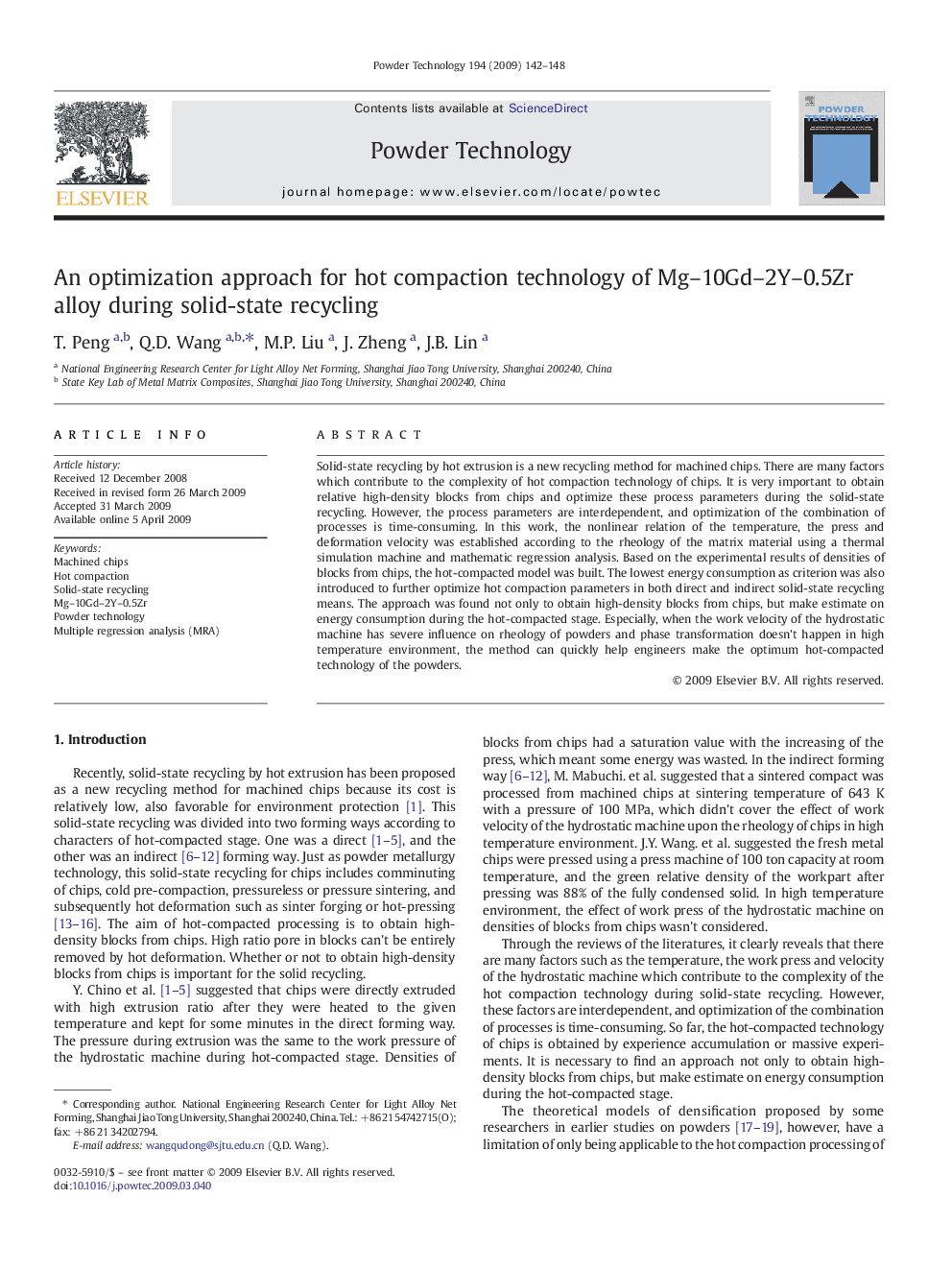| Article ID | Journal | Published Year | Pages | File Type |
|---|---|---|---|---|
| 238550 | Powder Technology | 2009 | 7 Pages |
Solid-state recycling by hot extrusion is a new recycling method for machined chips. There are many factors which contribute to the complexity of hot compaction technology of chips. It is very important to obtain relative high-density blocks from chips and optimize these process parameters during the solid-state recycling. However, the process parameters are interdependent, and optimization of the combination of processes is time-consuming. In this work, the nonlinear relation of the temperature, the press and deformation velocity was established according to the rheology of the matrix material using a thermal simulation machine and mathematic regression analysis. Based on the experimental results of densities of blocks from chips, the hot-compacted model was built. The lowest energy consumption as criterion was also introduced to further optimize hot compaction parameters in both direct and indirect solid-state recycling means. The approach was found not only to obtain high-density blocks from chips, but make estimate on energy consumption during the hot-compacted stage. Especially, when the work velocity of the hydrostatic machine has severe influence on rheology of powders and phase transformation doesn't happen in high temperature environment, the method can quickly help engineers make the optimum hot-compacted technology of the powders.
Graphical abstractThere are many factors which contribute to the complexity of hot compaction technology of chips. Based on the rheology of the matrix material and the experimental results, the hot-compacted model was built. The lowest energy consumption as criterion was also introduced to further optimize these parameters. The approach was found not only to obtain high-density blocks from chips, but make estimate on energy consumption during the hot-compacted stage.Figure optionsDownload full-size imageDownload as PowerPoint slide
